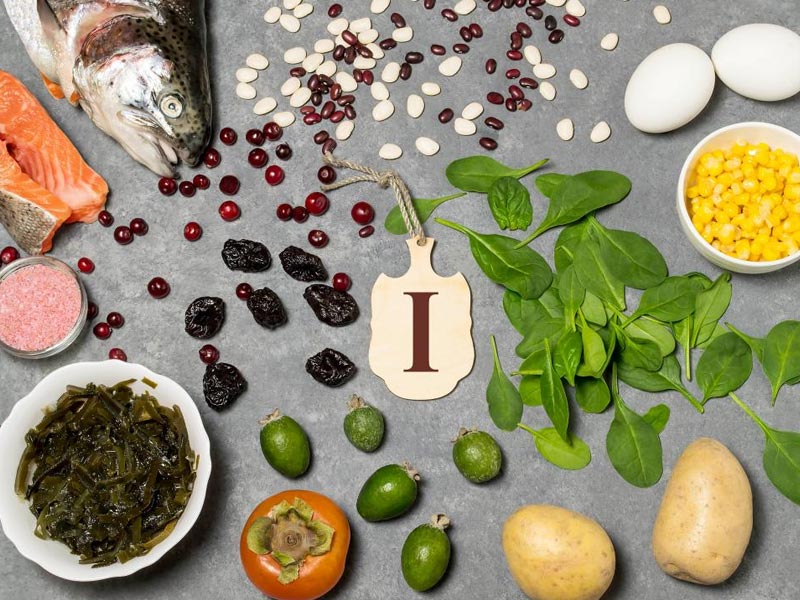
As we all are aware that various nutrients and micronutrients in the form of vitamins and minerals are important for the good health and proper functioning of our body. By now we all have gathered enough knowledge about the importance of these essential nutrients and the ways in which they help to keep us healthy and maintain the proper functioning of various organ systems. In this list of essential nutrients, iodine is something that the world has not paid enough attention to. Today where people around the globe are suffering through various diseases and conditions due to iodine deficiency, it becomes crucial to spot some light on this topic and spread awareness about the same. This world iodine deficiency day, we bring to you 5 prevention tips that can help you to prevent iodine deficiency and other complications associated with this condition. Sit back, be patient and read along to know about the importance of iodine for our body and prevention tips that one can follow to keep iodine deficiency at bay.
Table of Content:-
Why is Iodine Important?
Being an essential dietary nutrient, iodine is important for the development, growth and normal thyroid functioning of the human body. Iodine impacts the functioning of the thyroid gland, this gland has a crucial role to play in the process of brain development, regulating growth, increasing the metabolic rate and regulating the growth of bones. As iodine plays such an important role in the process of growth and development and is also responsible for the proper functioning of various organ systems, a deficiency of this vital nutrient can result in diseases such as goiter, low IQ, reproductive impairment, weak bones, neurometer retardation and hypothyroidism.

Image Credits- Very Well Health
Also Read: World Iodine Deficiency Day 2021: How Much Salt Is Beneficial For You?
Where iodine is a nutrient that the human body can not synthesise on its own, it becomes really important to look into your regular iodine intake.
Prevention to avoid Iodine Deficiency Diseases
Where iodine deficiency can lead to diseases and conditions such as goiter, hyperthyroidism and weak bones along with some other complications related to the thyroid gland, it is important to maintain the adequate levels of iodine in the body. As there is no other way though, iodine levels can be maintained instead of iodine rich food as the human body can not synthesise this nutrient on its own. Here are a few irid rich foods that can help you in getting the required amount of iodine and maintaining adequate iodine levels which as a result will keep these iodine deficiency diseases at bay.
#1. Iodized Salt
The simplest and the most effective way of balancing out the iodine levels of your body and helping to keep the iodine deficiency disorders at bay, fortified salt is something that can come to your rescue. Adding iodized salt to your food does not require any extra efforts of dietary changes and has been proven to be effective in providing adequate amounts of iodine to the body and in preventing the complications caused due to iodine deficiency disorders.

Image Credts- The Financial Express
Where the common sea salt does not consist of iodine in it, one needs to be careful while buying it and always opt for iodised salt. When we talk about salt consumption for preventing iodine deficiencies, we refer to the consumption of iodised salt in limited quantities. As even the healthiest of things tend to have negative effects if consumed in excess, the case is the same with salt. Where it can help to prevent diseases such as goiter and hyperthyroidism caused due to iodine deficiency, an excessive intake of the same can also result in causing the problem of high blood pressure.
#2. Vegetables
Since childhood we all have been scolded for finishing up those healthy vegetables as they are rich in various nutrients and micronutrients. Different vegetables benefit our health in different ways, but you would be surprised to know that there are some vegetables that can help you to overcome an iodine deficiency. Healthy vegetables such as sweet potatoes, spinach and onion have an abundance of iodine content in them. Adding them up in your regular diet can help you to have adequate levels of iodine in your body and protect you from getting the diseases caused due to the deficiency of this nutrient.
#3. Eggs
Omlet, french toast, sunny side up, boiled egg or poached egg, who knew that your favourite breakfast food can help to keep you healthy and prevent such serious disorders. Well to our surprise eggs are a superfood that are a good source of iodine and their regular consumption can lead to maintaining the adequate iodine levels on the body.

Image Credits- Delish
Also Read: What Makes Egg A Superfood?
Where eggs are known for being a rich source of healthy fats and proteins, people who tend to leave the yolk and eat the rest of it need to know that the yolk of an egg is where the majority of iodine is present.
Also watch this video
How we keep this article up to date:
We work with experts and keep a close eye on the latest in health and wellness. Whenever there is a new research or helpful information, we update our articles with accurate and useful advice.
Current Version